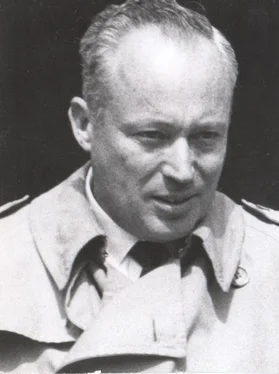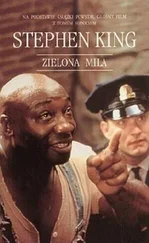Alex couldn’t even get to talk with the leader of the Revisionists, Samson Ben Horin. They were traditionally loners who wanted no part of a plan committing them to act with the group. Alex reckoned they were girding for street fighting.
The businessmen were racked with problems. Shelves were bare, prices were rising, there was a continuing pressure by the new directives. They considered Alex’s quest for unity as asking for charity. For them, anything outside of normal business activities was deemed “charity.” Charity could be considered only after profits, and they were doubtful these days.
The largest single entity, the religious community, simply refused to budge. They took their cue from Rabbi Solomon to resort to the traditional weapons of prayer and patience.
The Jewish Civil Authority treated Alex as though he were a leper. He was branded as a harbinger of doom by Silberberg, the playwright, who had had all the fight knocked out of him by the single blow delivered in the office of Rudolph Schreiker. Silberberg, whose plays had once reeked with slogans of courage ... The rest of them were jealous of their stations. Only Emanuel Goldman, the pianist, could be counted on.
Outside the Jewish community, pickings were lean. The gentile intellectuals were as terrified as the Jewish intellectuals. Paul Bronski proved a classic example. From the time he returned to Warsaw till the time he moved to Sienna Street, he did not receive a single call from his colleagues or students at the university.
The majority of the population wanted no part of the German-Jewish war. A minority were actively against the Jews.
The one great voice of power and conscience, the Church, remained silent.
As a clever tactician, Alexander realized early that unity was impossible, so he carefully formulated a secondary objective. When it was all thought out, he called together three of the most reliable strong men. These were people who understood the urgency without being preached to and who, like him, were groping for a way to hang together and bypass the dreaded directives.
The four of them picked each other’s brains in a series of secret meetings.
There was Alex, and there was Simon Eden, the iron-handed ruler of the Joint Federation of Labor Zionists. He alone was able to form and control ten different middle-to left-wing factions. His Joint Federation accounted for more than sixty per cent of all organized Zionists. Simon had the best qualities of Alexander and Andrei combined and few of their faults. Like Andrei, he had been an officer in the army and was a large and strong man who could rise to fierceness. Like Alex, he was a cool and deliberate thinker. Andrei respected Simon more than any man in Warsaw except Alex.
The third man was Emanuel Goldman, the aging but still flamboyant artist of the piano who had been appointed head of the Jewish Civil Authority.
Goldman was Dr. Franz Koenig’s one error in judgment. Koenig believed correctly that the famed musician had a “name” value to the Jews but certainly underestimated his devotion to humanitarian causes. Goldman was realistic. He knew he could not last long on the Civil Authority. The Germans wanted a weak man to carry out their orders. He was grimly determined to find a route for the community before he was dispossessed.
The fourth man was David Zemba, director of the American Relief Society, an organization supported by American Jews. Zemba, a Polish Jew, was small in stature, with a closely cropped beard and a mild manner, but he was utterly fearless and brilliantly shrewd. With Poland occupied, the American dollars which he controlled had to be one of the foundations of any adventure.
Together, they worked out a formula.
Stage one: Emanuel Goldman, as head of the Jewish Civil Authority, received an appointment with Dr. Franz Koenig.
“We are faced with a problem, Herr Doktor. By tradition, we Jews have always taken care of our own. Social work was formerly handled by the old Jewish Council, which has been disbanded. As you know, the war has compounded this problem. We have no legal instrument through which to take care of welfare problems.”
“I take it you are petitioning me to set up a welfare department in the Jewish Civil Authority?”
“Not exactly. The Authority does not have either trained personnel or funds and we are too busy taking the census.”
“I am certain you did not come here without a proposal.”
“So. My proposal is such. There are many professional do-gooders. They can collect the money—they can find the people—they can run orphanages and old-age homes.”
“Are you suggesting an independent agency?”
“I am.”
“Not as a branch of the Civil Authority?”
“Correct.”
“Why?”
“On matters of self-help the Jews are nearly always unified, no matter what their philosophy. Having this traditional service operated by a government agency would cause tremendous grumbling among diverse elements. The raising of funds would be extremely hard, for people are naturally suspicious of government. There would be untold confusion, duplication of work, and administrative hassles which could be avoided by establishment of an independent agency.”
Koenig saw sense in Goldman’s arguments. He could assign the Civil Authority to watch over this new agency. On the other hand, if the Civil Authority were running welfare work he would always have Goldman fighting with him for more funds. Yet it was not all so black and white. Dr. Koenig was learning that Goldman was a man of character, and although it appeared on the surface that it was a simple matter, he was not coming in with a proposal that would benefit the Germans.
Emanuel Goldman also knew he was not up against a robot like Schreiker. Koenig was probing, looking for a trap.
“Who do you propose to head this new agency?”
“Oh, there are lots of people. Mainly, we must find a man acceptable to all elements. Say, Alexander Brandel.”
“Brandel? With his Zionist background?”
Goldman shrugged. “The Bathyrans as a group never achieved Brandel’s personal stature. They are disbanded now. He is mild and inoffensive and quite trusted.”
“Suppose I let you have your agency, but on one condition?”
“And that condition, Herr Doktor?”
“Brandel does not run the agency.”
They had come to the impasse. Goldman had hoped he could push it through without this moment. Now he had to make his gamble. He reached inside his breast pocket and placed a small envelope on Koenig’s desk. “The full plans for the agency are in here, Herr Doktor,” he said. I beg you to study them carefully and give me your answer tomorrow.”
The old man left the city hall, not knowing whether he was about to spend his last day on earth.
When Koenig opened the envelope he took out five one-thousand-dollar bills.
It was quite clear to him. The Jews wanted to run this agency away from prying eyes. His first inclination was of anger. He snatched the envelope from the desk and started for Rudolph Schreiker’s office. Then he stopped. Schreiker would laugh at him and pocket the money.
The very idea that a good German official would accept a bribe! He walked back to his desk slowly. The last few weeks had plunged him from the dreamworld to Teutonic purity. At this moment Schreiker was organizing hoodlum gangs to begin looting Jewish-owned warehouses.
Why shouldn’t the Jews play the game also? But where did he fit in? Five thousand dollars! More in a snap of the finger than he had made in an entire year at the university.
While everyone was playing cutthroat, wouldn’t it be utterly ridiculous for him to stand alone as a paragon of virtue? And if he did, how long would he last with Schreiker? Schreiker had been playing him for a fool.
Читать дальше












